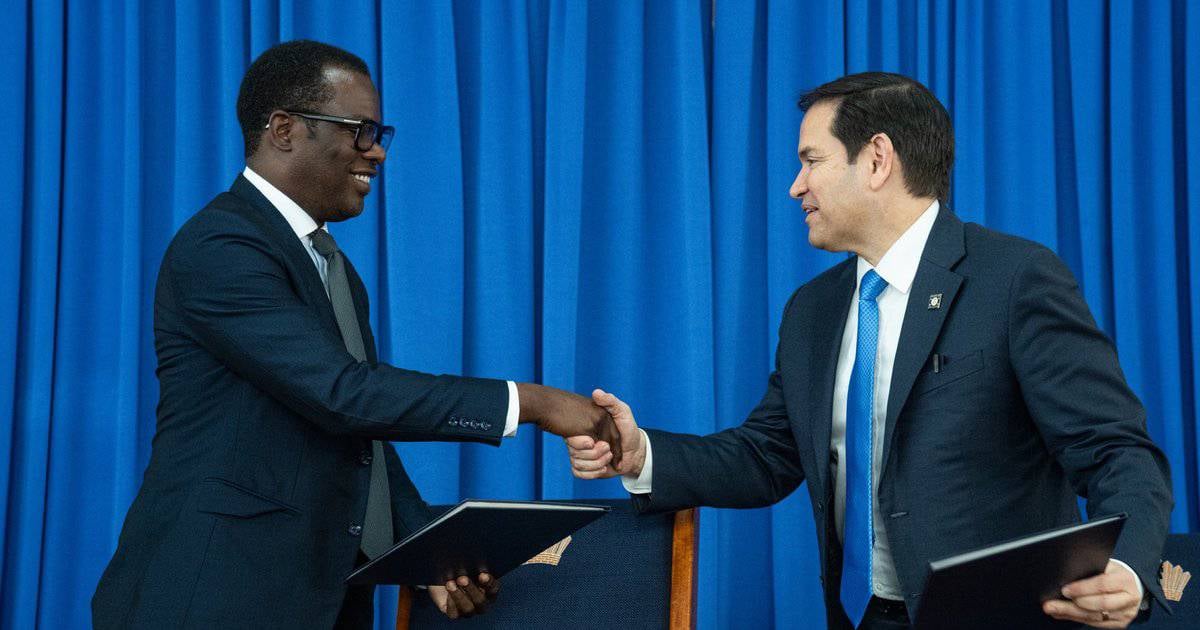On Thursday, U.S. Secretary of State Marco Rubio issued a stark warning to Venezuelan President Nicolás Maduro, cautioning that any military aggression against Guyana or U.S. oil giant ExxonMobil's facilities would be a "grave mistake" with severe repercussions for the Venezuelan regime. "It would spell disaster for the Venezuelan regime if they were to attack Guyana or ExxonMobil. The outcome wouldn't be favorable," Rubio stated during a press conference in Georgetown alongside Guyanese President Irfaan Ali.
Rubio's visit forms part of an official tour across Caribbean nations, where he reiterated America's commitment to supporting Guyana's territorial sovereignty amidst the ongoing territorial dispute over the Esequibo. This region, rich in oil resources, is currently under Guyanese administration but claimed by Venezuela. "We have a formidable Navy that can reach any corner of the globe, and we are committed to Guyana," Rubio emphasized, according to DW.
In a move to bolster regional security, the United States and Guyana signed a Memorandum of Understanding (MOU) to enhance cooperation against regional threats, including drug trafficking and transnational organized crime. This partnership aims to fortify and safeguard both the U.S. and the Caribbean.
Rising Tensions Over the Esequibo
The territorial dispute between Guyana and Venezuela has seen a surge in tensions recently, particularly after Caracas announced plans to elect a governor for the Esequibo in May, a move Georgetown and the international community view as provocative. Tensions further escalated earlier this month when a Venezuelan military patrol was spotted inside the Stabroek Block, a maritime area where ExxonMobil operates.
Venezuela's Response: "Recycled Threats"
The Venezuelan government quickly reacted to Rubio's comments. Foreign Minister Yván Gil vehemently rejected Rubio's statements, accusing him of recycling "old scripts of threats and bravado." "Venezuela does not bow to intimidation nor submit to blackmail," Gil declared on his Telegram channel.
"Keep your nose out of this dispute! We will not allow you to turn this into a battleground for ExxonMobil's transnational interests and your country's military-industrial complex," he added, as reported by El Comercio. Gil defended Venezuela's stance as a "historical and legitimate" claim over the Esequibo, asserting that while Caracas seeks no conflict, it will defend national peace and sovereignty "by all available means."
An Uncertain Future in the Caribbean
The Esequibo dispute stands as one of the continent's most sensitive territorial conflicts, now entangled with geopolitical implications. With major powers like the United States openly supporting Guyana, and Venezuela framing its narrative as a defense of sovereignty against foreign interests, the region remains tense. A misstep could potentially trigger a diplomatic or even military escalation, in a context where energy resources are crucial.
Questions on the Esequibo Conflict and U.S. Involvement
What is the Esequibo dispute about?
The Esequibo dispute is a territorial conflict between Guyana and Venezuela over a region rich in oil resources, which is administered by Guyana but claimed by Venezuela.
How has the United States shown support for Guyana?
The United States has expressed its commitment to Guyana's territorial integrity and signed a Memorandum of Understanding (MOU) to enhance cooperation on regional security issues.
What could be the potential consequences of a Venezuelan attack on Guyana?
A Venezuelan attack on Guyana could lead to severe repercussions for the Venezuelan regime, possibly including diplomatic or military responses from the United States.
